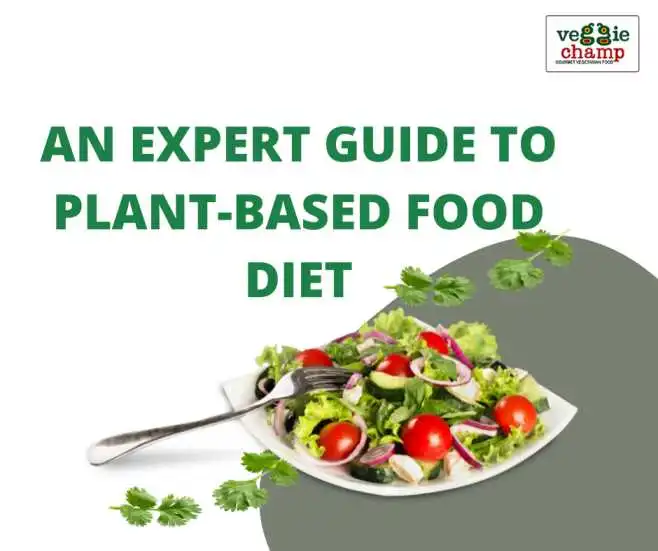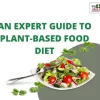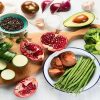
An Expert Guide to Plant-Based Food Diet
Precisely what does it mean to eat only whole, plant-based foods?
All kinds of eating patterns fall under the umbrella phrase “plant-based diet,” but in general, they include fewer animal products and more plant-based meals, such as fruits and vegetables and grains and pulses, nuts and seeds.
Some vegans believe that a plant-based diet consists only of vegetables and contains no animal products.
What to Eat if You’re Eating a Vegan Diet
A plant-based diet doesn’t have to be a one-size-fits-all proposition. Rajaram recommends looking at dietary groupings and finding methods to include whole food and plant-based alternatives. You’ll discover chances to test meals that may help you feel full and deliver a health boost. You may want to include the following on your to-do list:
Nuts, especially almonds and other tree nuts, may help decrease LDL (“bad”) cholesterol when included in a regular diet. In addition to being filling, they may aid in weight loss by keeping you fuller longer.
Veggies are an essential element of a healthy diet. They are high in nutrients and come in a rainbow of hues, representing a different set of health advantages.
It’s possible that eating many fruits, mainly berries, might lower cholesterol and blood sugar levels.
Oats and barley are good sources of whole grains, so consider including them in your diet. Also, experiment with unfamiliar grains like millet or sorghum. Whole grains are high in fibre and phytochemicals, all linked to a lower risk of heart disease, diabetes type 2, digestive problems, and even certain types of cancer.
Pulses, such as dried peas, chickpeas, lentils, and beans, include fibre and plant protein, essential for satiety and weight loss. Additionally, the soluble fibre they contain may aid in managing blood cholesterol. Try to eat at least 1/3 to 1/2 cup of cooked beans daily.
Veganism may take many forms.
Eating less meat and more plants may be accomplished in various ways, including by following a vegan or plant-based diet. It’s possible to avoid animal products in several ways.
Eats plant foods in their original or little processed form, as much as feasible. Do not consume artificial sweeteners or imitation meats. It is possible to be vegetarian without abstaining from consuming any animal products whatsoever.
A more “flexible” approach is referred to as a flexitarian one. Flexitarians are semi-vegetarians who consume most of their meals without meat, poultry, or fish but sometimes include a small quantity.
A pescatarian diet avoids meat and poultry while consuming fish, milk, and eggs regularly.
Restrict your intake of animal products such as meat, fish, eggs, and dairy to become a vegetarian. Turning meatless on Mondays or going vegan before 6 p.m. are examples of this (as Mark Bittman recommends)
Pagans are a hybrid of paleo and vegan diets, consuming mostly plant-based cuisine and avoiding animal items in moderation. For the most part, Pagans stick to a plant-based diet consisting of healthy grains, greens, and legumes and avoid processed meals and items with added sugar.
Plant-based meals that are raw or barely heated to low temperatures may be eaten as a vegan diet.
On a plant-based diet, here are some foods to avoid.
In the context of a plant-based diet, it’s not about avoiding particular foods. Instead, it’s all about making wise decisions.
As an example, not all plant-based foods are deemed nutritious. Popular snack food businesses may provide non-animal-product based potato chips. Even if they are beneficial for you, it doesn’t always indicate that they are.
Getting your nutrients from natural sources is recommended by scientists. When it comes to carbohydrate intake, it means avoiding highly-processed versions of these foods, such as vegetable chips and white bread. Limiting additional sugars is also a good idea. Trans fatty acids and foods labelled “partially hydrogenated” should be avoided when it comes to fats.
Why a Plant-Based Diet Is Better For You ?
There are several health benefits of eating a plant-based diet[1]. diets based on these diets may have the following benefits:
- Reducing heart disease-related deaths
- Maintain a healthy weight
- Reducing the risk of most chronic illnesses
- Obesity, hypertension, high cholesterol, and diabetes are preventable and treatable diseases.
- Many studies have shown that a plant-based diet may even be able to treat type 2 diabetes and advanced coronary artery disease. But the findings aren’t definitive just yet.
According to recent research, people with long-term COVID-19 symptoms may benefit from adopting a plant-based diet.
Plant-based nutrition may also help reduce typical COVID concerns, such as:
- Anxiety \sDepression
- Sleep apnea is a common
- Pain in the skeletal system
- Irritation of the whole body
You may quickly improve your health by including more plants in your diet, but you should not discount the powerful benefits of a plant-based diet. There is scientific evidence to support the health benefits of a plant-based diet, including a lower risk of heart disease and diabetes. Several phytochemicals and fibre are not present in animal products that you may get through eating more plant-based meals. In addition to enhancing immunity, glucosinolates and flavonoids have been shown to inhibit cancer activity.
Eating a plant-based diet is also thought to be good for the environment. Plant-based diets may help decrease greenhouse gas emissions and waste byproducts since their production places less burden on the environment than animal-based diets.





3 thoughts on “An Expert Guide to Plant-Based Food Diet”
Pingback: An Expert Guide to Plant-Based Food Diet | For Bestimesonly - Forbes Times Only
Pingback: THE PLANT-BASED MEAT EXPLAINED - Veggie Champ
Pingback: 8 Scientific Benefits of Following a Plant-Based Diet - Veggie Champ